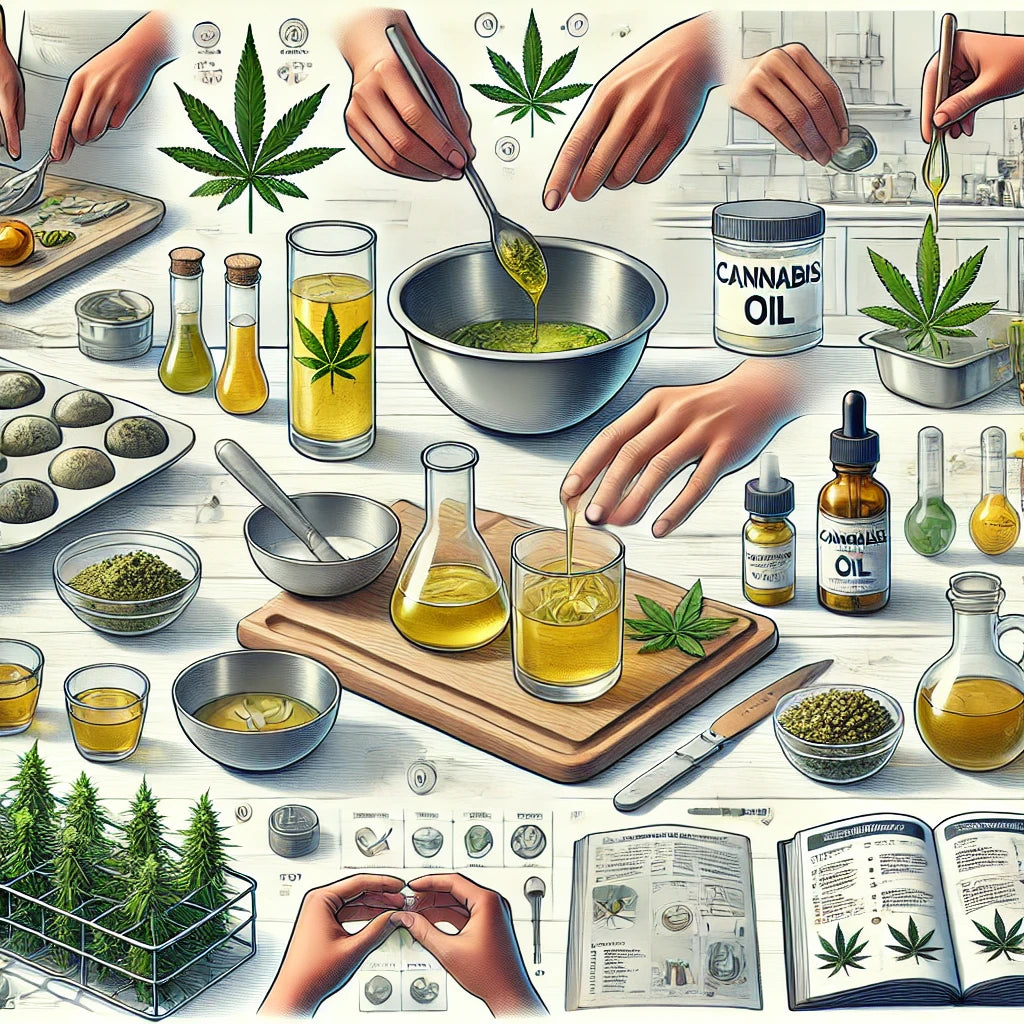Personal Experiences with Cannabis Recovery
For many, the road to recovery is a personal, rocky journey, where the slightest detail can become a turning point. As the tides shift in the once-uncharted waters of mental health and wellness, unconventional tools often emerge as resilient life preservers for those battling their personal demons. Among them, cannabis has gained a significant presence, defying stereotypes and opening dialogues within the recovery community. In this article, we'll delve into the complex relationship between cannabis and recovery, peppered with personal stories and expert insights, all to provide you with a nuanced look at the topic.
Understanding Cannabis in Recovery
Recovery narratives have numerous commonalities, yet each harbors a unique thread that weaves a custom tale. For some, cannabis is a beacon that provides a path to solace, a salve for profound discomfort. Historically, cannabis has been used for its medicinal properties, a legacy that encroaches upon modern paradigms of health and wellness.
In the context of recovery, individuals often turn to cannabis as a less harmful alternative to substances that have wreaked havoc on their lives. Unlike substances like alcohol or opioids, cannabis has a lower potential for addiction and virtually no risk of fatal overdose.
It's important to clarify that while cannabis may offer a safer zone for some, it's not a 'cure-all' for the complexities of addiction and mental health challenges. Nonetheless, its potential to alleviate symptoms and offer a sense of balance cannot be overruled, and for many, it becomes an integral part of their recovery toolkit.
Personal Experiences and Testimonials
Stories carry the weight of evidence that statistics and research sometimes lack. Here, we present personal encounters with cannabis in recovery, ranging from private victories to shared epiphanies.
Jessica's Journey to Serenity
Jessica, a thirtysomething mother of two, began using cannabis during her recovery from opioid addiction. "It was like a warm hug at the end of a long, arduous day," she describes. "My addiction counselor was initially skeptical, but when he saw the positive change in my demeanor and heard about the cessation of my cravings, he became supportive."
Her narrative resonates with many who have found cannabis to be a transformative pause in their thoughts, steering them away from potent triggers and cravings.
Danny Redefining Relaxation
For Danny, a young professional battling anxiety and work-related stress, cannabis is his retreat. "The joy of rediscovering relaxation was unparalleled. I'd always had a skewed perception of 'down-time,' which made me susceptible to overdrinking on the weekends," he recalls. "Cannabis, however, allowed me to unwind without compromising the hard-won stability of my weekdays."
Danny's story is a candid account of how a shift in the quality of one's leisure time can simplify the quagmire of staying sober.
Samantha's Silent Resolution
Samantha, a retiree newly in recovery from prescription medication abuse, found tranquility in cannabis. "It was a silent resolution to my chronic pain and sleep disturbances – something that no other medication, including those prescribed, had offered so effectively," she explains. "It allowed me to lay a foundation for my recovery, not fortified by the aching reminders of the past but by the promise of unbroken, restorative sleep and pain-free days."
Her experience mirrors that of many others who find in cannabis a reprieve and a tool for routine, unencumbered living.
Benefits of Cannabis in Recovery
Amidst the narratives are the consistent themes of improved health, well-being, and daily functionality. The benefits of cannabis, when used responsibly, can be substantial in aiding recovery.
Reduction of Withdrawal Symptoms
Cannabis has shown efficacy in mitigating the discomfort of withdrawal symptoms, often a precipitator of relapse. It's particularly beneficial for symptoms associated with opioid, alcohol, and tobacco cessation. At Ashario Cannabis, this principle is observed with verifiable results, according to a growing body of anecdotal evidence.
Pain Management
For those in recovery from chronic pain, or for those who've depleted their prescriptions on a tumultuous journey towards sobriety, cannabis emerges as a non-opioid option. Its analgesic properties are well-documented, providing relief without the risks of opioid dependence.
Improved Sleep and Relaxation
Quality sleep is restorative and stabilizing. This is a nearly universally appreciated effect of cannabis, providing solace to those whose sleep has been disrupted by day-to-day stresses, or by the monumental task of rebuilding life post-recovery.
Emotional Support and Stress Relief
The emotionally supportive role of cannabis can be traced through the generations that have leaned on it as a means of pacifying stress and anxiety. In recovery, where emotional equilibrium is pivotal, cannabis can assist in managing the mind's tempest, preparing the ground for the newly sown seeds of coping mechanisms and mindfulness.
Risks and Considerations
Cannabis, like any substance, is not without its risks. For some, its introduction into their recovery regimen can lead to dependence or a new pattern of substance use. As with any tool in recovery, its application must be carefully considered, and it's imperative to consult with healthcare professionals.
Potential Legal and Social Implications
The legal and social nuances of cannabis use create a tapestry of conflicting messages. While some states have legalized its use, the social acceptance and stigmas associated with cannabis are still evolving. It's crucial for individuals to be aware of the framework within which they are making these health-related decisions.
Impact on Cognitive Function
Chronic cannabis use can impact cognitive functions, particularly in the developing brain and among individuals predisposed to mental health issues. Long-term, heavy usage during recovery may inadvertently hamper the progress and goal-reaching capacity of the individual.
Dependency and Dual Diagnoses
There's a possibility of developing a dependency on cannabis, especially among those predisposed to addictive behavior. Individuals with dual diagnoses – addiction coupled with a mental health disorder – require particularly tailored treatment plans. Introducing cannabis into the mix requires a cautious hand and a vigilant eye.
Locations and Commitment to Excellence
At Ashario, we are proud to have several convenient locations, all dedicated to providing the utmost in quality, service, and wellness-focused cannabis products. Our specific locations are:
- North York Central: 1111A Finch Avenue West Unit 1, North York, Ontario M3J 2P7 | 📞 (647) 368-7722
- Aurora Boutique: 15114 Yonge Street, Aurora, Ontario, L4G 1M2 | 📞 (905) 503-6770
- Yonge Street Flagship: 6464 Yonge Street, North York, Ontario, M2M 3X4 | 📞 (416) 477-9333
Each location boasts the best weed product pricing, with the largest selection in Canada. Open during full legal operating hours, from 9AM to 11PM, 365 days a year, including every holiday, you can always find time for Ashario. Here's what sets us apart:
- High THC and CBD Products: We offer a wide array of products catering to both recreational enthusiasts and those seeking therapeutic benefits.
- Best Staff and Service: Our knowledgeable and friendly staff ensure an outstanding customer experience, tailored to your individual needs.
- Luxury and Wellness-Focused: Experience the convergence of luxury and wellness, providing a refined atmosphere that caters to your comfort and well-being.
To explore our selection, learn more, or to get in touch, visit our website at ashario.ca. Join us at Ashario, and elevate your cannabis experience.
Conclusion
The role of cannabis in recovery is an evolving topic, one that's deeply individual and deserving of compassionate exploration. For some, it's a beacon that illuminates the path to a new life; for others, it's a lamp providing warmth and comfort in the stillness of recovery.
We've journeyed through the personal stories that paint a picture of hope, understanding, and the quest for wellness. The benefits are clear, yet the risks are undebatable. The use of cannabis in recovery is not a directive, but an invitation to consider an alternative that, when properly understood and administered, can be a powerful adjunct to traditional recovery methods.
I encourage those navigating their recovery to approach this tool with the same open-mindedness they've traversed the trials of sobriety. Seek the counsel of professionals who can offer context to your personal narrative and guide you through the pages of recovery, which now, with cannabis as a footnote, may lead to a brighter, better epilogue.
Important Notice: Content on this website is intended strictly for informational purposes. Ashario does not promote any product or represent that the products mentioned on Ashario's website are treatments for any kind of medical condition. Ashario cannot guarantee that information provided is error-free or complete and is not responsible for the quality of the information provided by users. Ashario does not endorse any user-reported information, any particular strain, product, producer, organization, treatment, or therapy.








